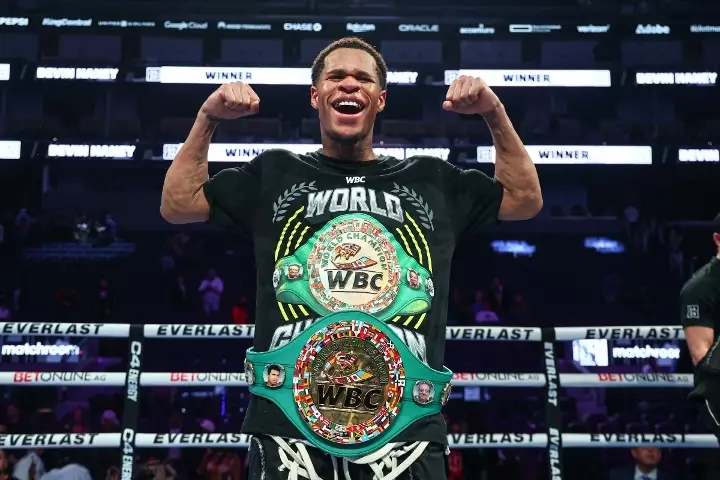In the ever-evolving landscape of professional boxing, scandals and dramatic upsets frequently capture the public’s imagination. One such incident occurred last spring when Ryan Garcia faced off against Devin Haney at the Barclays Center in Brooklyn, New York. Despite being a fan favorite, Garcia delivered a performance that surprised many experts, decisively defeating Haney and claiming what many viewed as the victory of a lifetime. However, the celebratory atmosphere surrounding this bout quickly evaporated when news broke that Garcia tested positive for ostarine, a banned substance, leading to the annulment of his victory and subsequent suspension by the New York State Athletic Commission. This marked the beginning of a complex narrative that has now spiraled into a full-blown legal dispute.
The immediate aftermath of the fight was filled with disbelief. Garcia, known for his quick hands and flashy style, found himself stripped not only of a victory but of his reputation. The chaotic lead-up to the fight began to paint a picture of a boxer who seemed unfocused and erratic. Statements made by Garcia raised questions about his mental state, leaving fans and analysts bewildered. Instead of basking in the glory of a major win, the boxer, nicknamed King Ry, was left to grapple with the consequences of his actions and their repercussions.
Garcia’s abrupt declaration on social media that he would retire fueled speculation about his mental and emotional well-being. Adding to the drama, his relatively low-key response following the public backlash hinted at the internal turmoil he was experiencing. The boxing community watched closely as this developing saga threw new light on Garcia’s character and resilience.
In a striking twist, Devin Haney chose to respond to this saga not with silence but with legal action. On a fateful Friday, he filed a lawsuit against Garcia in New York, charging him with battery and fraud related to their April match. In this claim, Haney contends that the fallout from Garcia’s positive test led to significant physical injuries, reputational harm, and emotional distress—all of which he estimates could lead to damages in the millions.
This lawsuit raises essential questions about accountability in a sport where the stakes are palpably high. The implications of performance-enhancing drugs in boxing cannot be understated, both in terms of physical risks and the psychological dilemmas faced by athletes. Haney’s legal maneuver underscores a growing trend wherein fighters are increasingly willing to seek justice not just within the ropes, but also through the legal system.
The Broader Implications for Boxing
The lawsuit filed by Haney serves as a crucial reminder of the complex interplay between sport, ethics, and the law. In the world of boxing, where the physical consequences of matches can be severe, the introduction of performance-enhancing drugs alters the battlefield entirely. Ostarine, the substance found in Garcia’s system, is notoriously known for its ability to enhance muscle recovery and performance, raising the specter of unfair play.
Furthermore, this legal confrontation exposes a critical aspect of boxing culture: the scrutiny under which fighters live. Unlike athletes in other sports, boxers often have to contend with their own psychological pressures while also facing scrutiny from peers, promoters, and fans. Haney’s move to sue Garcia may not only serve his personal interests but might also resonate with other fighters who feel the weight of dishonesty and betrayal in their field.
As the narrative unfolds, the battle between Ryan Garcia and Devin Haney threatens to reshape the boxing landscape. Garcia finds himself grappling with not only the consequences of his actions but also a potentially costly legal struggle. In contrast, Haney seeks vindication, aiming to address the injuries—both figurative and literal—that he claims to have suffered.
Ultimately, the boxing world is left to ponder a vital question: how can athletes safeguard their integrity in an arena where competition is fierce, and the lines between victory and defeat can be blurred by human frailties? The answers remain to be seen, but the outcomes of this case could potentially set precedents that resonate far beyond the ring. This legal contest between Garcia and Haney exemplifies the urgent need for clear standards and accountability in a sport that has historically endured its own share of controversies.


Leave a Reply